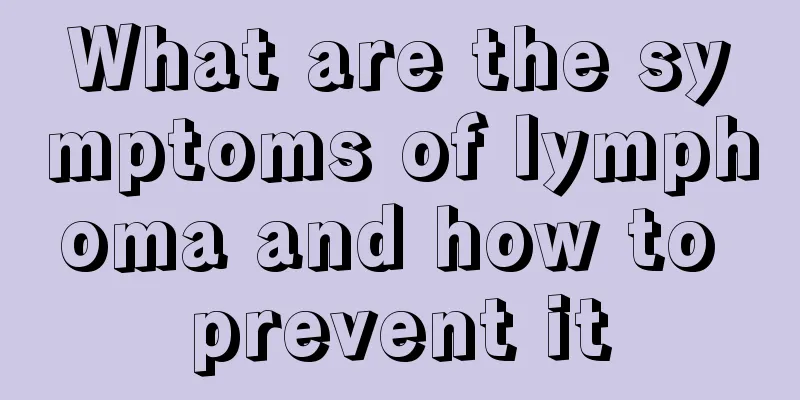Will fainting from blood kill people?

|
Fainting at blood is a relatively common phenomenon in life, and it usually happens to women. It is caused by psychological factors. Previous exposure to blood-related stimulation, coupled with a weak body tolerance and a lack of inner security, makes it easy to faint at blood. However, fainting at blood has a great impact on physical health, ranging from dizziness and panic to fainting at worst. So will fainting with blood kill people? 1. Causes of fainting with blood 1. Fainting at the sight of blood is a physiological manifestation, but also a psychological phenomenon Why do people faint when seeing blood? This is the same as why people get terrified when they see "demons". Why people suffer from anxiety disorders, phobias, etc. is a similar question. Psychological phenomena are truly bizarre. Some people find it comfortable to look at blood. Such as those who often cut their bodies until blood flows out and feel great pleasure. Hemophobia is a condition in which one feels dizzy after seeing blood. From the perspective of physiological mechanism, this symptom is a symptom of shock caused by a person's mental state being strongly stimulated in an emergency event - a "bleeding incident", which leads to high tension in the neurovascular system and partial ischemia of the brain. However, this fainting is transient. In fact, blood phobia is more of a psychological phenomenon, or it can be said that psychological mechanisms play a greater role. Because it's just like when a person suddenly witnesses a murder or a disaster and is frightened to death. Although it is the human body that is stimulated by external stimuli, it is the mind that is stimulated first. It is a reaction when the mind is highly tense. Fainting is not pathological. It is just watching blood flowing (some people faint when seeing blood being drawn from a vein). It is not witnessing a real bloody conflict. Therefore, the degree of fainting in this situation cannot but be said to be related to personal psychological factors. 2. Fainting at the sight of blood is related to inner insecurity The phenomenon of fainting at the sight of blood is mostly related to a person’s inner insecurity. This feeling of insecurity is mainly a subconscious reaction to the fear of illness and death. We understand it symbolically: blood means life, and the flowing blood means life is being lost. Watching the blood flow, it is as if we are witnessing with our own eyes the fresh life slipping away and life heading towards death. Psychoanalysis tells us that fear of death is the root cause of human anxiety. Each of us has the fear of death and the fear of life. It’s just that people who faint at the sight of blood have greater subconscious death anxiety than the average person. 3. Blood phobia is a projection of past fear experiences Fainting at the sight of blood may be related to a person's past fear experiences. In life, there are motion sickness, seasickness, and altitude sickness, which are just like colds. People are used to it and seem to understand it because it is the reaction of the brain nerves causing loss of balance when the human body is in a high or fast rotation. As for blood phobia, the human body does not touch anything, but faints when the vision comes into contact with blood, which seems a bit unreasonable. It can be said that fainting due to blood is completely psychological. The psychological factors are still subconscious. This is mostly related to the person's past experiences of fear, such as physical trauma, life-threatening situations, or traumatic bleeding in childhood, or witnessing major dangerous or bloody incidents. The incident caused the child to feel frightened, afraid, and helpless at the time, and these feelings and events will gradually fade away with the passage of time. However, in the process of gradually fading away, the experienced sense of danger will be deposited in the subconscious like a "traumatic memory." Then, in later life, when faced with risky things or situations where he feels his life is threatened, he will appear more panicked than the average person and easily arouse emotions of tension and anxiety. 4. Fear of blood is related to personality The phenomenon of fainting at the sight of blood is also related to a person's overly sensitive and serious personality. If we lived in a strict and demanding relationship environment when we were children, or were instilled with concepts such as "loss of blood once shortens one year of life" and "10 eggs cannot make up for a drop of blood", then he will be a person who refuses to donate blood in the future. It is not that he is stingy with blood, but that he is afraid of bleeding. We often see such people, who are very serious about their work, even too serious. If they see someone who is careless about safety, they will immediately give numerous warnings. If their child accidentally falls and gets injured, even with just a minor wound or a little bleeding, they will scream and panic. They are always cautious in everything, seem to have a strong sense of security, are overly alert, and in layman's terms, appear neurotic. In fact, it is a habitual reflection of inner anxiety experience, or it can be said to be a stubborn and serious personality trait formed from childhood to adulthood (in pursuit of a sense of security and certainty). 5. Of course, fainting at the sight of blood may also be related to differences in physical constitution. 2. Get rid of the trouble of "fainting blood" Have a new understanding of blood. If you feel dizzy when seeing blood, it means that you are subconsciously afraid of blood, hate blood, and reject blood. That is why you feel dizzy when seeing blood in real life. Therefore, you need to have a new understanding of blood. What exactly are you afraid of about blood? If you think about it carefully, you are actually afraid of its loss, but it seems like you are afraid of blood itself. You can also think that you have always been aware of the risks symbolized by blood, and you are simply expressing your normal fear of trauma (fear of death). Another idea is that if a person donates about 200 ml of blood every year, it will be good for the body's hematopoietic system, so it's good to bleed a little bit normally. Maintain a sense of closeness to blood. The more we fear something, the more we want to get closer to it and the closer we are to it, the less fear we will feel. Some things are not worth being afraid of (for example, agoraphobia, can you say it is agoraphobic? It is often the negative psychological suggestion of the ominous feeling at the beginning of the situation and the attitude of resisting the ominous feeling that reinforces the unwarranted fear of something. Therefore, to eliminate the trouble of "fainting at the sight of blood", you can start by getting closer to blood. First practice approaching blood in your imagination: evoke blood scenes through imagination: such as blood transfusion, blood drawing, bleeding from trauma, etc., imagine that you can touch blood, clean blood stains, bandage bleeding wounds, etc. This is called imagery therapy. Practicing this regularly can increase your psychological tolerance for blood phobia anxiety and enhance your sense of power when in contact with blood. After that, you need to practice gradually in real life and watch scenes of bleeding: such as appreciating the process of others donating blood at a blood donation event, or having a blood test when you or your loved ones see a doctor. Try to watch the doctor's operation and fully experience the bleeding scenes in TV and movies. If you encounter someone with a minor injury and bleeding, try to wipe the blood or bandage it yourself. Treat it with a normal mind. If fainting at the sight of blood really bothers you, the most important thing is to treat it with a normal mind, that is, think like this: life is full of dizziness, everyone has the problem of feeling dizzy about something, it's not a big deal, you just faint at the sight of blood, it's a small matter. |
>>: Tips for accidentally swallowing date pits
Recommend
The efficacy and function of dark green jade
Dark green jade is a type of mineral, and it is v...
What are the benefits of drinking more salt water
Drinking salt water appropriately on a daily basi...
How to deal with leather sandals rubbing your feet
Whenever the hot summer comes, people like to wea...
What can you do with leftover dough
The quantity of pasta is not as easy to control a...
What causes lung pain?
Lung pain should never be ignored, because many d...
Can people with gout eat melon seeds?
Gout patients should be more careful about any fo...
What should I do if I become darker after military training
Nowadays, whether it is high school or university...
What causes throat cancer
The occurrence of laryngeal cancer may be caused ...
Ways to improve kidney function
The function of our kidneys will continue to decl...
How is Snake Gallbladder and Fritillaria Liquid? 11 points to note when consuming it
If a child at home has a cough, the hospital will...
Where will the gallbladder hurt if it is rough
Rough gallbladder means that the gallbladder wall...
Surgical treatment of liver cancer
Surgical resection is still the first choice for ...
How to check sperm survival rate?
Every man hopes that his sperm survival rate is a...
Why does jaundice occur in the late stage of liver cancer
A 58-year-old female patient with advanced liver ...
What are the general symptoms of lung cancer? 4 common symptoms of lung cancer
We all know that there are many causes of lung ca...









